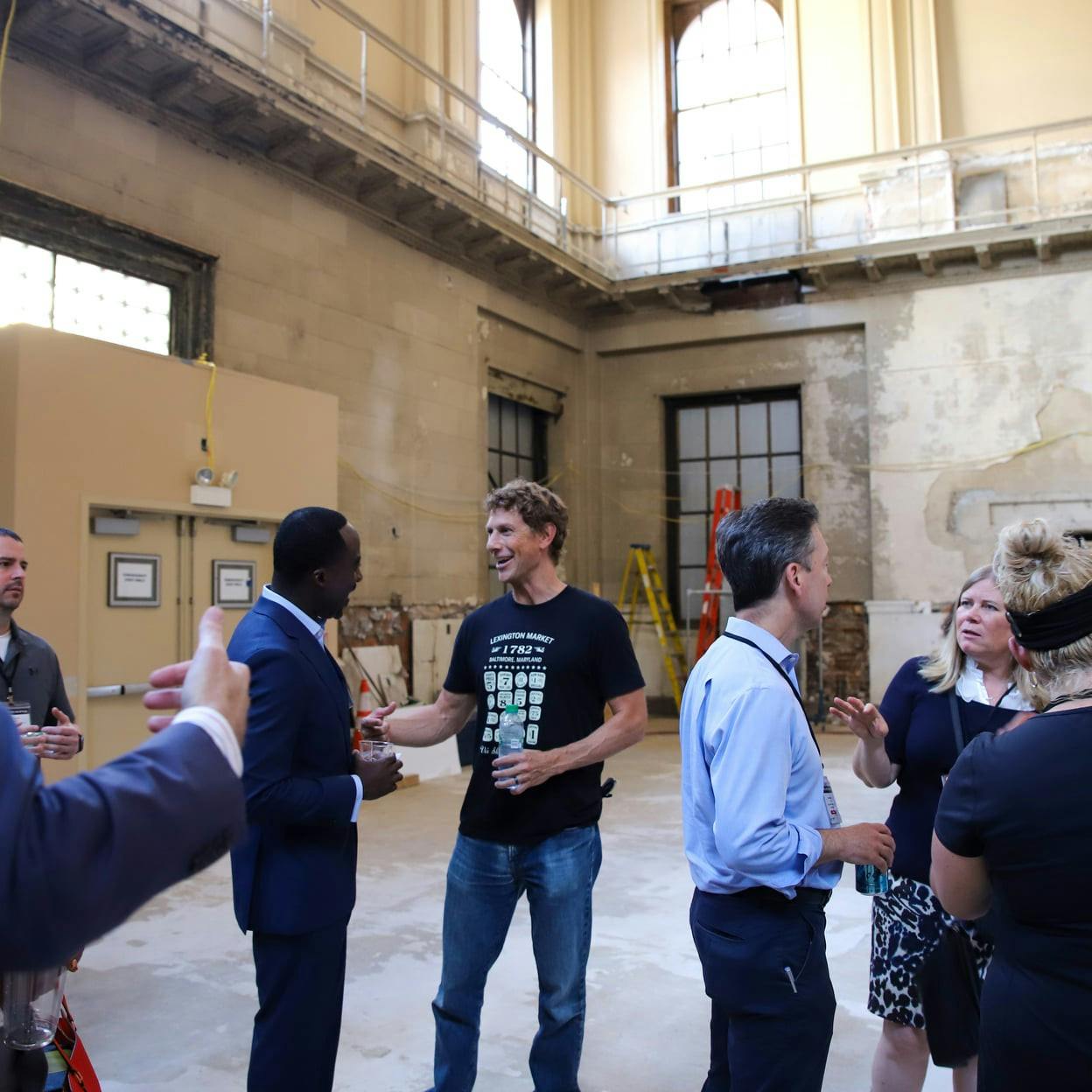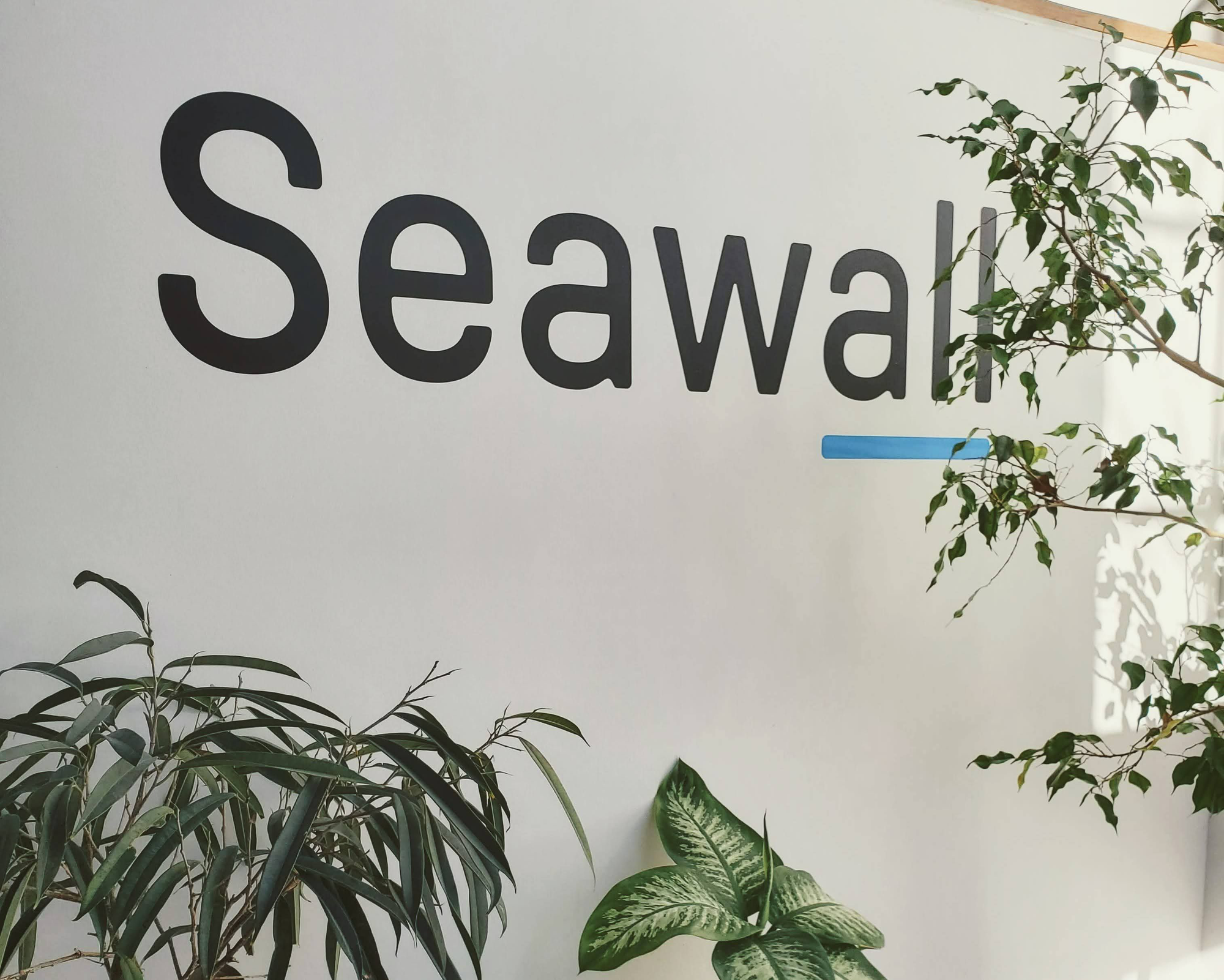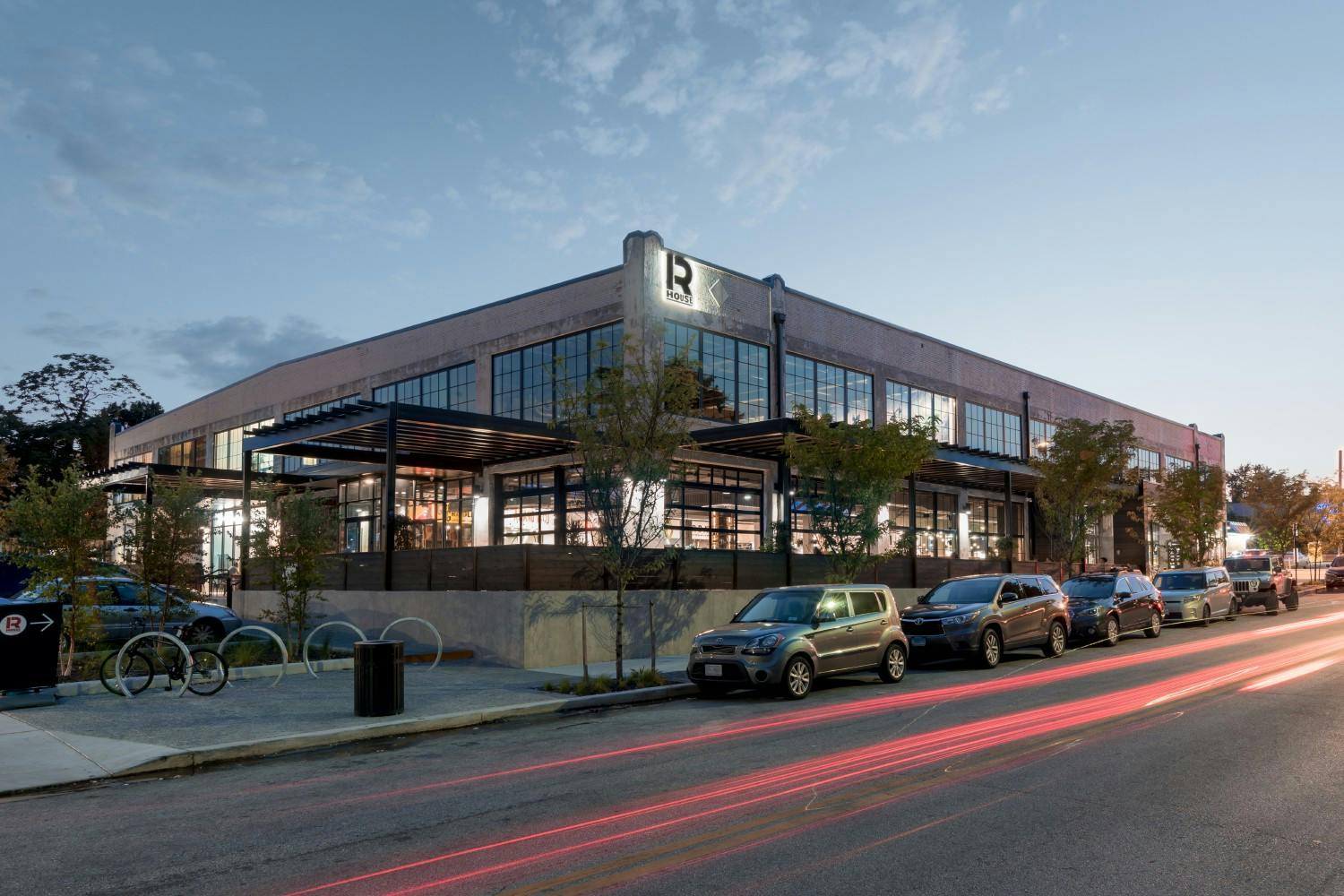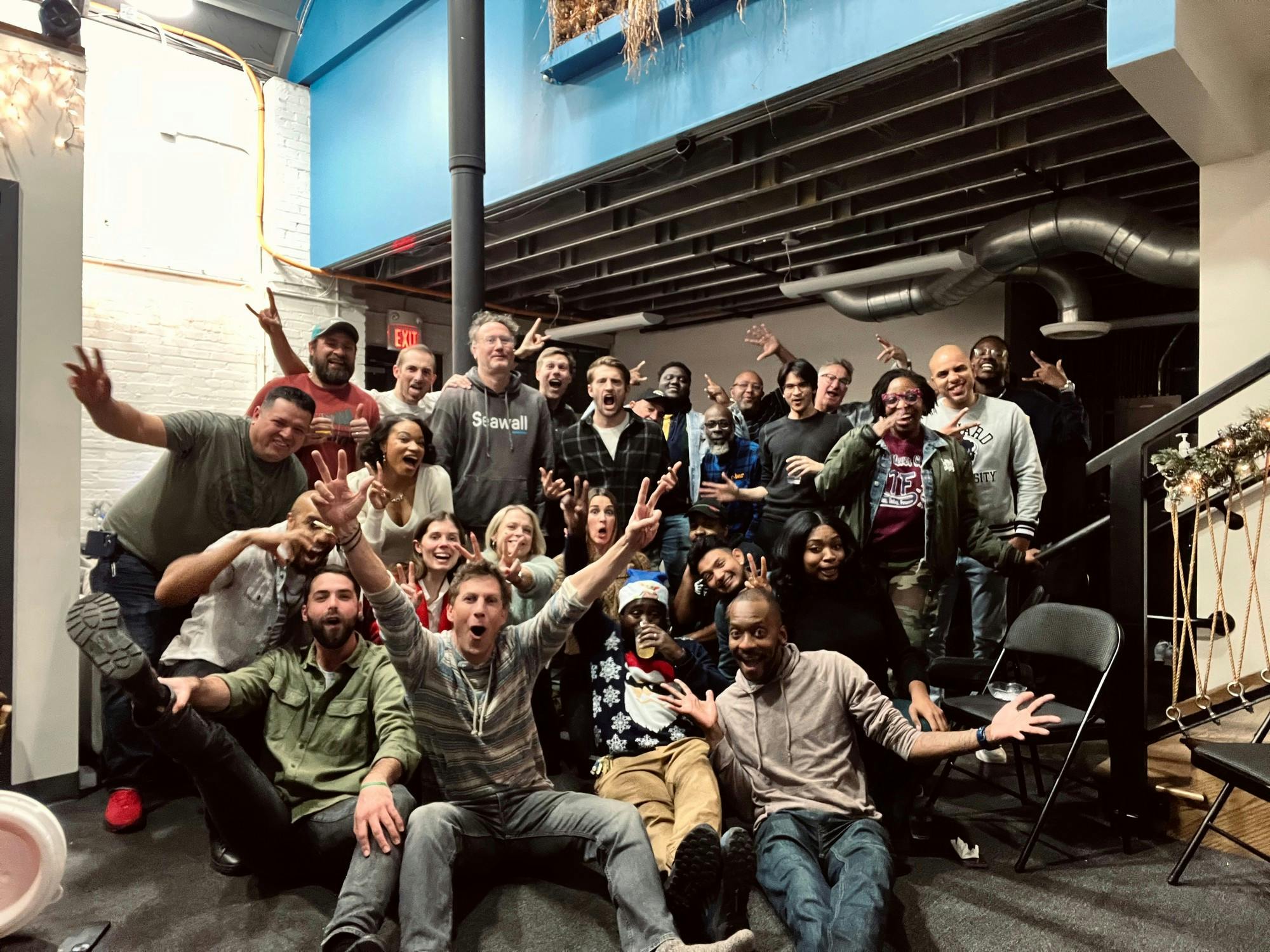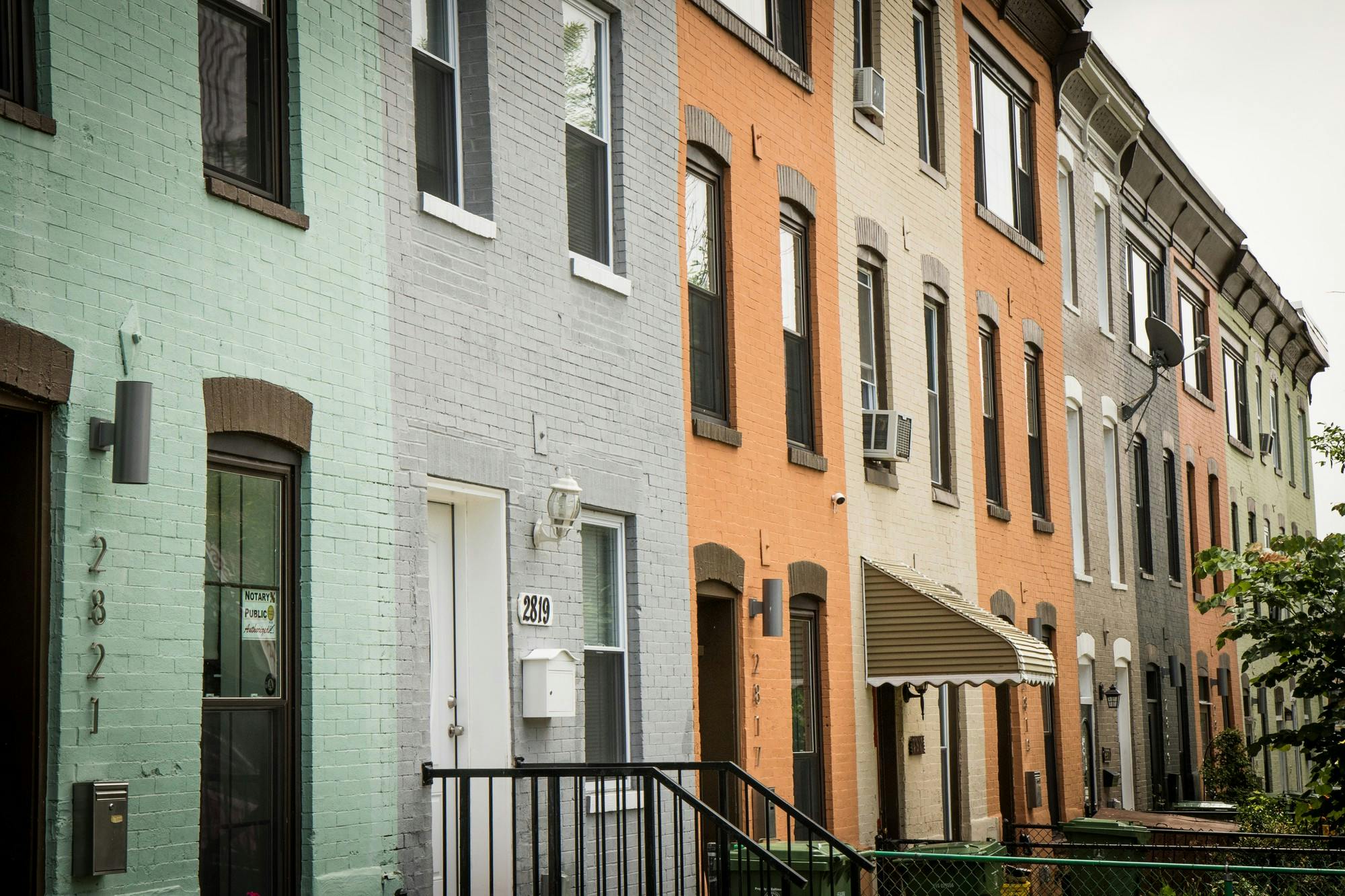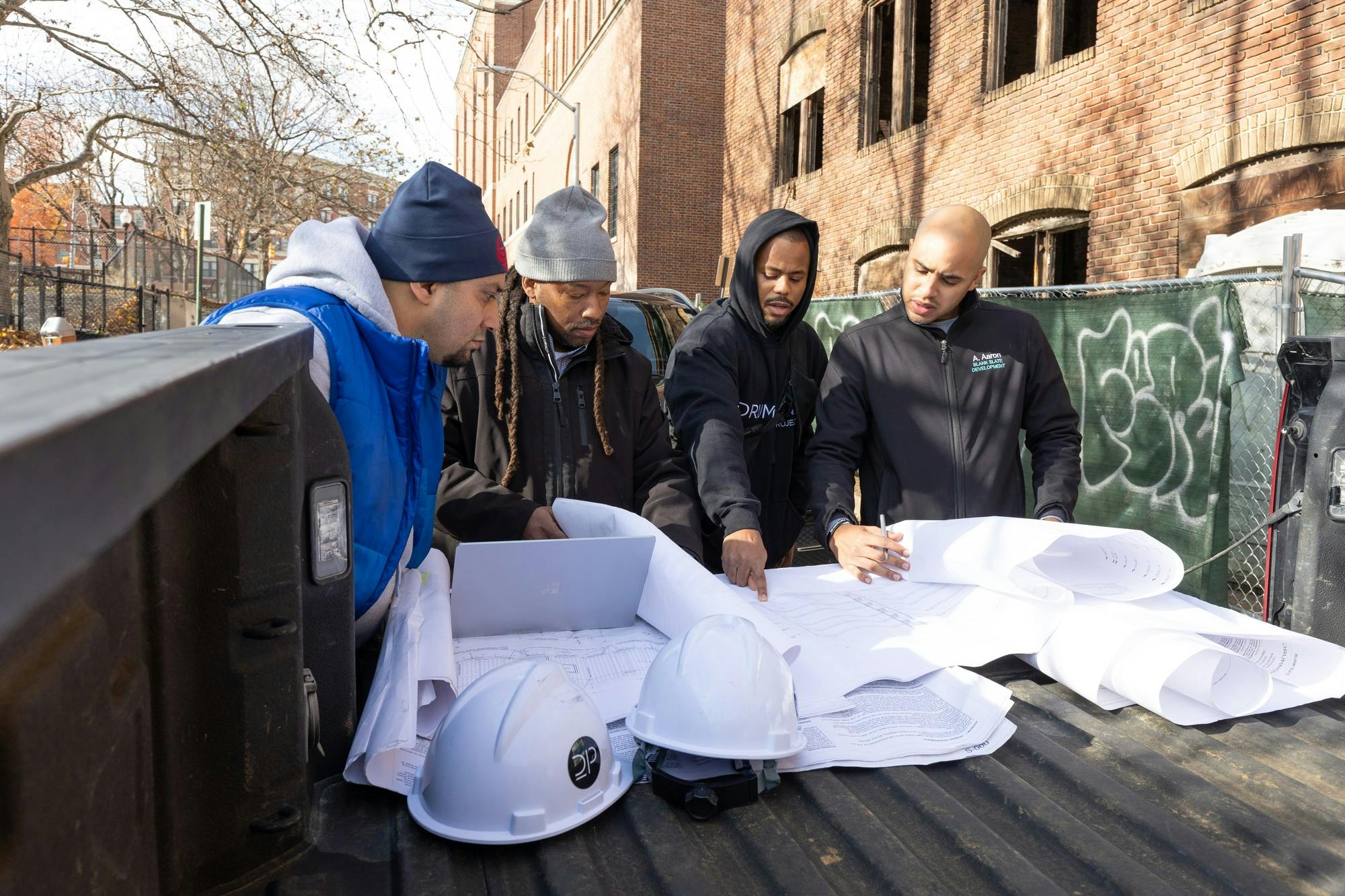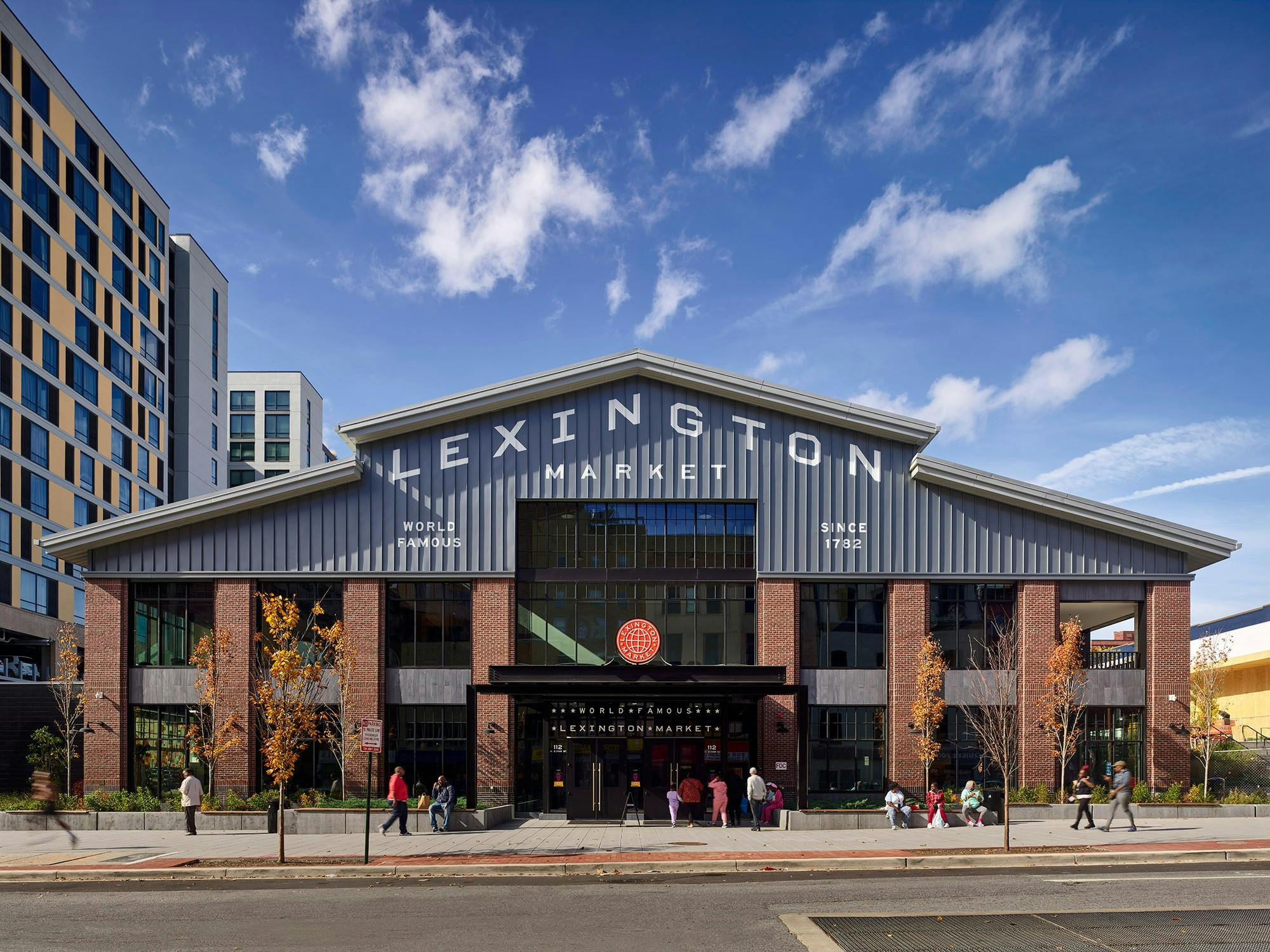Seawall and Thibault Manekin in Baltimore are becoming synonymous with doing real estate development differently. In recent years, they've launched community driven food and beverage concepts, after many years of creating affordable housing for teachers and collaborative office space for nonprofits. Along the way, they haven't shied away from engaging in complicated conversations about how to ensure that the communities they work in are the ones driving the change that they want to see.
Despite coming from a well-known mid-Atlantic real estate family, Thibault, along with his father Donald Manekin, started Seawall in 2007 with no first-hand development experience - with the vision that land and buildings should bring people together, not divide them (as they often do). Since then, Seawall has delivered projects totaling more than $250,000,000 in Baltimore and beyond - including R. House, the transformed Lexington Market, residential projects like Remington Row and Miller’s Court, and public charter schools like Green Street Academy and Baltimore Design School. Their impact is felt deeply in the communities where they work (and we helped them tell that story cohesively for the first time in 2023).
Alongside all of that, Thibault is known for leading from the heart; Baltimore Magazine called him “the eternal optimist,” and he published a book in 2021 called Larger Than Yourself. Cohere Partner Chris Richards sat down at Seawall’s Remington office in December 2023 to chat about it all.
Chris Richards: We’re sitting here in Seawall’s office in Remington in central Baltimore City, right on Howard Street, across from what I believe was Seawall’s first project at Miller’s Court. Think of Seawall as a whole. Describe yourself and the company, the mission behind it. What do you think you're trying to solve in the real estate industry? Why was Seawall created?
Thibault Manekin: Without going too far back, I've spent my entire life trying to understand why we're so divided as human beings. And what are the creative ways that we can bridge those divides. Those questions led me around the world to work in some of the most divided places on earth [with PeacePlayers]. I really came to understand the importance of showing up humbly without pretending to have the answers to anything - always having more questions than answers.
I ended up back in Baltimore unexpectedly in 2006 on the corner of Pennsylvania and North Avenue. A part of town that I'd been made to believe my entire life that I wasn't welcome in and wouldn't be safe in. Right or wrong, that's the narrative that was shared with me about that part of West Baltimore. And I had learned from my experiences living abroad that when we listen to the narrative that everyone else shares, we're limiting our ability to find the answers to the questions that are the deepest in our hearts. It's only on the other side of our comfort zones that those answers can even begin to be found.
And so I began to walk around the community that day and I had two realizations. One is that America, and particularly Baltimore, is more divided than these so-called "war-torn countries" where I’d just spent so much time and energy. And two, the real estate industry, the control and ownership of land, is the most powerful connected industry on the planet. It touches every single one of us, every single moment, of every single day. And most of the time we're not aware of it. Yet, with that power and connectivity, real estate's done more to divide us and keep us apart historically than it has to bring us together.
I also hold this belief that every generation, and certainly the younger generations, have this responsibility to re-imagine industries, to take things the way the world's known to be one way, and completely flip them upside down, where we can be more in service of our purpose than anything else. And so I got with my Dad [Donald Manekin], and we began to ask ourselves some key questions. Those questions were around how can we start a company that really re-imagines the real estate industry, so that buildings are used to empower communities, unite cities, and help to launch really powerful ideas?
CR: How has that original mission grown or evolved since you started?
TM: I want to say, somewhat selfishly, I've always wanted to make sure that the work that I did was in alignment with my purpose in life, which is to find the answer to that question [about why we’re all so divided]. And I found a way to do that with a sports organization around the world. And then, to try to find a way to do that with the real estate industry was even more exciting. Because as I think about broken industries, industries that have been driven by profit at all costs, this one out of almost any of them felt the most right for reimagining. And I also want to say, we are standing on the shoulders of giants who have done this work way before we even thought about doing it; I'm thinking of the late Jim Rouse here in Baltimore, Bill Struever, many others. We’re far from pioneering anything here. But speaking for all of us, I do think we feel really good about the reason that we're showing up to this work.
CR: It’s not a unique thought, but harder to put into practice - shaping your career around something that you can be passionate about.
TM: These are clearly questions that I think about a lot. And I think we've attracted this incredible group that deeply connects to our core questions - and has added questions of their own along the way.
One of the things that's been really important to us is we actually rarely hire anybody with real estate experience. You know, when you're setting out to re-imagine something, you don’t want people with 10, 20 years of real estate experience; they'd come in with a preconceived notion of what real estate was and is meant to be.
So, when you hire incredible writers, journalists, former teachers, social workers, event planners, it becomes kind of a blank canvas, right? We bring our lived experiences to this idea of approaching real estate in a different way. And I think that's been a huge part of the culture that's been created here, to bring people in with really fresh perspectives who weren't grounded in what real estate's always meant.
CR: You all recently launched your Seawall Impact reporting (that Cohere helped build). Not a lot of developers are doing this. What are you measuring and why take this step?
TM: My experience for the first 10 years of my professional career was in the nonprofit sector. And in the nonprofit sector, on a daily basis, you were out there raising large sums of money to deliver very specific impact-driven work that in some way is going to change the way the world turns for the better, right? And that's a lofty f*cking statement. And a hard question to ask if you don't deeply believe in it; your credibility will only get you so far. To be able to back that work up with impact-driven data makes the ask the next time, and the next time, so much easier.
So, to a certain extent, it's been a part of our DNA to think about impact. We always knew that it was going to be really important to be able to show those results and not just tell them. We've been doing this work for over 15 years now, and it's been very anecdotal up until this point. We all work very closely on these projects and in this neighborhood, and any of us can stand up and talk about the impact we’ve had on teachers, nonprofits, and diverse small businesses.
But now what we’re doing is translating that into more statistical data that helps tell the story in a clearer way. We never speak in dollars. We speak in impact. We tell the stories that people tell us, of how the buildings that they live and work in have changed their lives, have changed the way they show up to the kids in their classrooms, changed their ability to create generational wealth for their families, and so on.
Now, we're just adding a layer to that, which is diving more into the statistical side of it to back up the anecdotal side.
CR: Yes - I feel like that approach has been infused across your projects from the start, definitely since I started interacting with them. They all stand out as more than real estate investments.
TM: That's a good call out. When you read our pitch decks or if you were sitting in any of the presentations that we give to investors, it always starts with the purpose behind the project. It's always the story of the problem that we're trying to solve for.
We want to surround ourselves with like-minded people and investors who are first and foremost focused on the health of the communities and cities that we live and work in. For us, that's specifically Baltimore. And it has been really helpful to have been able to align ourselves with people who think with purpose over profit. But I do want to really call out the importance of ensuring that the work that we do is profitable, you know? We are a for-profit entity - not a nonprofit. When young developers come in and ask us how we do it, I share that we are certainly very purpose-driven. But it is a beautiful reminder every step of the way that if the work that you do doesn't make economic sense, doesn't pencil out, then you won't be doing the work anymore. And then you lose the tool that allows you to be in service of your purpose, right?
So in the beginning, for me, that was basketball. It was one thing to go around saying that basketball can bridge divides and ask for a bunch of money to help us do that. But if we weren't the greatest basketball program in every country that we showed up to, then we would lose participants, we would lose coaches, and the program would fold. Then we’d lose that tool to bridge divides.
Same thing with real estate. If we're not building the greatest buildings around, an incredibly attractive space, an inspiring space, then it's not going to lease. And we're going to lose the ability to serve our purpose. So it's that beautiful balance of how you ensure that the purpose drives the work that you do, with the profit supporting it.
CR: Right - we hear a lot of pitches and plans from developers too. And I know for me, it’s a big flag if only “purpose” or only “profit” is driving the why. It’s a balance. How do you think about that?
TM: It's soul and it's love, right? Love is a word that isn't used enough today - especially in real estate. We always say that designing, financing, and building these projects is the easy part. Ensuring that the buildings have soul, and maintaining their soul, and ensuring that the buildings are filled with love are the differentiators.
To us, it's no surprise that R. House has become this Baltimore institution. In our minds, at no point in time was it ever just a food hall. It was a place to create community. In the beginning, it was a place to help small businesses launch important ideas. And that’s the reason why there's a waiting list of vendors to get in, and that there are no empty stalls, and that we're doing more volume than we did before the COVID pandemic - because we've maintained our soul. And, because every decision that gets made there is from a place of love, and I think that's what attracts people and vendors into the space.
It's the same way that we manage all of these buildings, whether it's for teachers, or nonprofits, or the workforce, or small businesses. The soul and love - that I think, is the biggest differentiator that we have to offer.
CR: I want to ask about the term "gentrification", the elephant in the room when it comes to real estate. It’s often framed as improving an area for some and not for others, or changing the character of an area in a way that leaves some behind. How does Seawall think about gentrification?
TM: It's a beautiful question. And I am not a fan of the actual word gentrification, especially in a city like Baltimore, where there's tens of thousands of vacant abandoned properties.
We have a responsibility as people who love this city to deeply invest in every corner of Baltimore, to wake up hoping that we can drive through streets where there isn't a single vacant boarded up property, let alone blocks and blocks of them. Anything short of that is a disservice.
Of the incredible young real estate developers that come meet with us, every single one of them wants to deliver what has happened in Remington to their community. They want their version of R. House, for better or for worse. Nobody wants vacant homes in their communities. Everybody wants access to jobs. Everybody wants significant investment in bringing companies and local small businesses to their neighborhoods.
And at face value, that is gentrification. But when you hear it from people all over Baltimore and they're all wanting the same thing, that word gets complicated. So, the word that we're focused on is "displacement.” How can we ensure that we deliver all of those things that communities are asking for - jobs, housing, community amenities - without displacing the legacy residents that have counted on that neighborhood to be their home, shelter, and place of peace for generations? That's the dance. And so we will quickly change the subject from gentrification, because I think it makes people feel guilty about significant investment in making things nice, and instead pivot to ask, "How can we help bring great things and limit displacement?"
CR: I saw that your whole team did a day-long training on redlining recently. How was that and what’s been its impact so far?
TM: It was a really powerful day, as all of our focused trainings around this DIRE [diversity, inclusion, anti-racism, and equity] work that we do. In the first part of that day when we were just diving into the history, how it’s tied to all systemic racism, was just anger and rage.
The second half of the day was back here at the office where we kind of workshopped around the learning to translate that into the work that we are doing. As the afternoon unfolded, the feeling and realization I had was one of gratitude, and realizing how far we’ve come. In the past few years especially, we've been really intentional around undoing broken processes, challenging the status quo, never being comfortable in our bubbles.
CR: Can you talk more about that process? What prompted that internal work?
TM: Yeah, so, my dad and I started Seawall - with nothing but the best intentions, you know? We grew organically; projects came to us mostly through our networks and our involvement in this community of Remington. But a time came in the past few years, really around the start of the Lexington Market project, where we really got challenged.
Internally, we had people saying, "Look around at the people who are making the decisions; it's a bunch of mostly white men." And externally people were saying the same exact thing, "How serious are you really about this work?"
We had always thought that the work would speak for itself, but began to realize this incredible miss from the very beginning. And that really started this DIRE work and process. As a result of a lot of different things, it's led to a more internally diverse team. It's led to the organization becoming even flatter than it had been in the past. There really aren't closed-door meetings anymore. Everybody is invited to all meetings, and I think everybody has a say. Everybody at Seawall has ownership in all of the projects that we build. Every project that we do now, we bring on a minority development partner. Hopefully a very small group with one or two employees that will learn as much from us as we'll learn from them. And at the end of a pretty significant project, they’ll be able to develop without the need of assistance from somebody like us.
All of that, I think, really allowed me to sit in that moment [at the redlining workshop] and have what seemed like an out-of-body experience and just appreciate how much people believed in us, to appreciate how much confidence they had to challenge us, and let us begin the process of changing course a bit.
CR: You’ve been called “the eternal optimist” - how do you respond to that; is it always sunny? Does that influence how you identify or address challenges realistically and openly?
TM: Look Chris, it's come with some work, but I am a huge believer that the universe protects us all. I'd say that the biggest misses, losses, and disappointments that I've had in business have been incredible blessings. And while they sting in the moment, years later, the gratitude for the lesson that was learned was way stronger than the immediate gratification of what it was that I would have been chasing in the moment.
I don't know if I prescribe fully to the eternal optimist title, but I am able to operate from this place of deeply trusting the universe, the process, and really an ability to surrender. And I think that allows for a fairly free-flowing day with limited aggression, anger, and any of the other things that would normally come as a result of 99 nos and one yes. The amount of things that we're working on a daily basis, most of them don't go our way initially, you know? And I think when we can approach it from the place of patience, trusting the process, and love, it makes for a smoother road.
Cohere is a Baltimore creative agency working with founders, entrepreneurs, and makers on real estate, culinary, and community ventures. This encompasses real estate marketing, naming, leasing strategy, branding, and signage - across multifamily and commercial projects.
